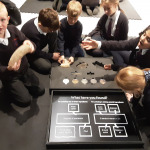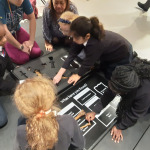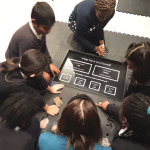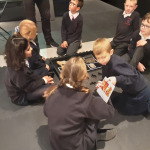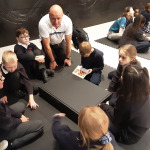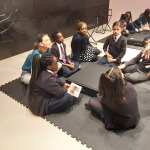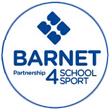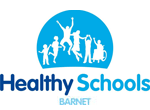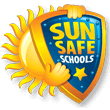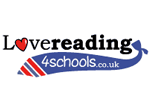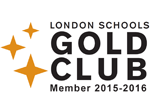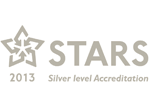History
Intent
History has always been held in high regard at St Theresa’s Catholic Primary School. The history curriculum at the school draws from and makes full use of the immediate and wider local area, enabling children to develop a deep understanding of the rich history of their locality.
Topics are informed by the national curriculum and are sensitive to children’s interests, as well as the context of the local area. The history curriculum at St Theresa’s is carefully planned and structured to ensure that current learning is linked to previous learning and that the school’s approaches are informed by current pedagogy. In line with the national curriculum 2014, the curriculum at William Patten aims to ensure that all pupils:
- Gain a coherent knowledge and understanding of Britain’s past and that of the wider world which helps to stimulate pupils’ curiosity to know more about the past;
- Are encouraged to ask perceptive questions, think critically, weigh evidence, sift arguments, and develop perspective and judgement;
- Begin to understand the complexity of people’s lives, the process of change, the diversity of societies and relationships between different groups, as well as their own identity and the challenges of their time.
Implementation
History is taught in blocks throughout the year, so that children achieve depth in their learning. The key knowledge and skills that children acquire and develop throughout each block have been mapped to ensure progression between year groups throughout the school. At the beginning of each new history topic, teachers refer to classroom timelines to develop children’s understanding of chronology. Each topic is introduced with reference to the chronology of previous topics (including those from previous years). The KWL strategy (What I Know, What I would like to know and what I have learnt) is used to check existing knowledge at the beginning of each history topic and this process informs a programme of study that is responsive to children’s interests. Key knowledge is reviewed by the children and rigorously checked and consolidated by the teacher. By the end of year 6, children will have a chronological understanding of British history from the Stone Age to the present day. They are able to draw comparisons and make connections between different time periods and their own lives. Interlinked with this are studies of world history, such as the ancient civilisations of Greece and the Egyptians.
Cross curricular outcomes in history are specifically planned for and these are indicated on the school’s progression mapping. The school’s own context is also considered, with opportunities for visits to places of historical interest and learning outside the classroom also identified and embedded in practice. Visits to the local area and use of local artefacts, such as the use of maps and photographs of bomb damage to the local area in WWII, also support contextualised learning, as well as the acquisition of key knowledge and systematic development of key skills. We ensure that all are History topics are engaging and the children get the opportunity to either go on a school trip or take part in a schools’ workshop to enhance the children’s understanding of the topic or give them a chance to celebrate their learning. (See gallery for some exampless)
Planning is informed by and aligned with the National Curriculum. In addition, staff have access to the Cornerstones plans and resources. However, teachers’ lesson design is not limited by the scheme and teachers have access to further guidance from national agencies, including the History Association. The history curriculum is designed to ensure appropriate diversity in the significant figures that children learn about. Teachers’ cater for the varying needs of all learners, differentiating activities where necessary and as appropriate, and ensuring an appropriate level of challenge. Outcomes of work are regularly monitored to ensure that they reflect a sound understanding of the key identified knowledge.
The Early Years Foundation Stage (EYFS) follows the ‘Development Matters in the EYFS’ guidance which aims for all children in reception to have an ‘Understanding of the World; people and communities, the world and technology’ by the end of the academic year.
Impact
Outcomes in topic and literacy books evidence a broad and balanced history curriculum and demonstrate the children’s acquisition of identified key knowledge.
Emphasis is placed on analytical thinking and questioning and children demonstrate a coherent knowledge and understanding of Britain’s past and that of the wider world, in addition to being curious to know more about the past. Through this study pupils ask perceptive questions, think critically, weigh evidence, sift arguments, and develop perspective and judgement. Regular heritage projects provide further relevant and contextual learning, engaging member of the community in children’s learning and providing positive role models from the community for children to learn from (including the development of meaningful resources, that are shared nationally to support excellence on the teaching and learning of history.
History Progression of Learning Document
History School Trips:
Year 3 trip Gunnersbury Park for their topic ‘Tribal Tales’.
no images were found
Year 6 trip to the Ragged School Museumno images were found
Year 5 Trip to Imperial War Museumno images were found
Year 1 Visit to the London Transport Museumno images were found
Year 2 Visit to the Golden Hinde for ‘Land Ahoy’ topicno images were found
Year 6 Visit to the Natural History Museum for Dinosaur and Darwin’s Delights Topicno images were found
Year 4 Visit to London Mithraeum for the ‘I am Warrior’ topic Year 5 Trip to The Charterhouse for the ‘Off with her Head’ topicno images were found
Year 5 Trip to the British Museum for the ‘Pharaohs’ topicno images were found
Year 5 Trip to Petrie Museum for the ‘Pharaohs’ topicno images were found
Year 6 RAF Museum for the ‘Britain at War’ topic
no images were found
Year 2 Tower of London for ‘Towers, Tunnels and Turrets’ topicno images were found
Year 6 National Army Museumno images were found
Year 4 Trip to National Maritime Museum Viking Workshop ‘Traders and Raiders’
no images were found
Year 3 Trip to London Urban Pioneersno images were found
Year 6 History Learning Examplesno images were found
Year 5 History Learning Examplesno images were found
Year 4 History Learning Examplesno images were found
